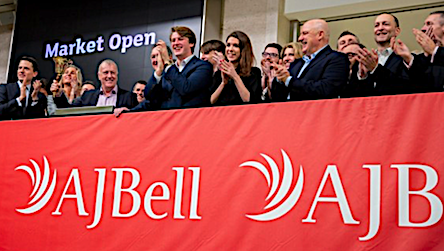A survey of more than 1,000 cryptocurrency investors carried out for Salford-based investment platform AJ Bell has found that a significant proportion of them “don’t have the basic building blocks of a sound financial plan in place.”
The survey found that 58% of the cryptocurrency investors don’t have an ISA (cash or stocks and shares), 50% don’t have a savings account, and 53% don’t have a pension.
About 83% don’t have an investment portfolio and 23% have none of these savings or investments.
“The survey revealed signs of a considerable misunderstanding amongst cryptocurrency investors about the potential downside of an investment in this area,” said AJ Bell.
“30% said they wouldn’t be willing to lose any of the money they invested. Only 25% said they would be willing to lose 75% or more.”
AJ Bell financial analyst Laith Khalaf said: “Our research suggests that a generation of investors have leap-frogged traditional savings and investments and jumped straight into the deep end by buying cryptocurrencies.
“If you’re the world’s richest man, investing $1.5 billion of the assets of your electric car company into Bitcoin is one thing.
“But UK consumers seem to be playing Russian roulette with their money on the cryptocurrency markets.
“There are a number of concerning findings from our research.
“Not only are many consumers buying cryptocurrencies without having an ISA, pension, or savings account in place, there also seems to be a significant misunderstanding of the risks involved.
“30% of cryptocurrency investors are not willing to lose any of the money they’ve invested, which suggests they lack an appreciation of the potential downside of their investment.
“Only one in four cryptocurrency investors would be willing to lose 75% or more of their investment, which is not beyond the bounds of possibility, given the volatility of the asset class.
“Indeed, in January the FCA warned consumers that they should be willing to lose all of their money if investing in cryptoassets.
“The unpredictability of the future of cryptocurrencies means putting money into Bitcoin is more speculation than investment.
“In ten years’ time, it’s possible the price of Bitcoin will be significantly higher than it is now, it’s also possible it will be close to worthless.
“It’s such a new and evolving market that no one can predict with any confidence which one of these scenarios, or any in between, might prevail.
“The same is not true of investing in the stock market.
“While there are no guarantees, there’s a very good chance that over ten years you will make a positive return from an investment in the stock market.
“For novice investors, a simple, low cost tracker fund, purchased in an ISA, will likely fit the bill.
“Investing is about gradually building up a nest egg, rather than getting rich quick.
“If you’ve never been tempted to trade movements in traditional currencies like US dollars, Japanese Yen, or the Argentine Peso, you should question what has led you to consider investing in a digital currency which is much more volatile.
“Our research suggests there are some investors who are buying cryptocurrencies in a sensible manner – on top of a diversified portfolio, and with their eyes wide open to the potential losses.
“But these measured crypto investors seem to be the exception rather than the rule.
“While no one can doubt Elon Musk’s exceptional record of achievements, Tesla’s purchase of $1.5 billion of Bitcoin isn’t a strategy private investors should follow without stopping to consider the downside.
“Indeed, in their latest regulatory filing, Tesla take care to outline many of the risks of buying cryptocurrencies.
“Mr Musk can afford to lose a few quid if things don’t go to plan, not everyone else is in the same boat.”
The survey of 1,134 cryptocurrency investors was carried out by findoutnow on January 20, 2021.
